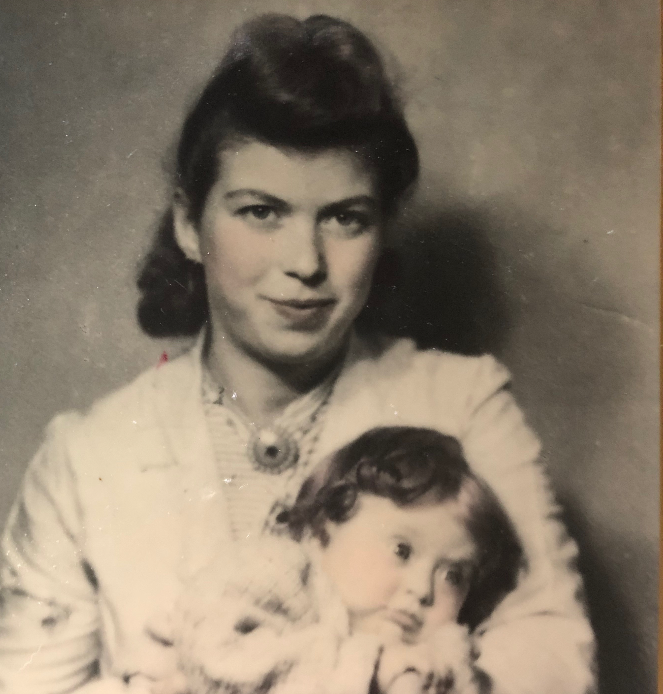Their mother had never stopped searching for her lost baby; her other daughters found her family after undergoing genetic testing.
By Batya Jerenberg, World Israel News
Thanks to genetic testing, a Jewish family was reunited last month in a tearful reunion seven decades after the Holocaust had torn an eldest daughter away from her mother, never to be seen again.
Dora Rapaport had been sent to Auschwitz with her two-year-old, Eva, where they were separated, and all trace of her was lost. Dora, who survived the infamous Nazi death camp, met her husband, Lewis in a Displaced Persons camp after the war and moved to Cleveland, Ohio, but never stopped looking for her first-born, even after having two more daughters and a son.
Dena Morris, 72, and Jean Gearhart, 74, grew up feeling the tragic story intimately, as their mother, who could also be lots of fun and “sparkly,” sometimes stayed in bed crying for the day while clutching the only picture she had of Eva as a baby in her arms. She also left home for Europe several times to go searching for Eva in orphanages, and spent much time writing letters to organizations such as the Red Cross in her desperate need to find her daughter.
Before she passed away in 1996 from a brain tumor, Dora asked her daughters to continue the search. Although the sisters had long concluded that Eva must have been murdered along with the other 1.5 million child victims of the Holocaust, they honored their mother’s wish, but came up empty as well. Last year, however, they turned to MyHeritage, a genealogy platform that has a genetic testing service – and struck gold.
They received an email in April 2020 saying that they probably had a niece, living in England by the name of Claire Reay. Reay received an email too, telling of her two aunts in the USA. She was stunned, as all her mother knew of her own history was that she had been separated from her mother during the Holocaust. While she wanted to learn of her past, all her searches came to naught because she did not even know her birth date or real name, just that she was called Chava in Hebrew and later, Evelyn in English.
Reay knew that her mother had somehow reached Palestine after World War II and was adopted as a young child by a Belgian family, who moved to England after several years. Evelyn married and raised Reay and her three siblings, always believing her immediate family must have perished during the war. She passed away in 2014 of pancreatic cancer.
Any doubts about the testing results disappeared after the American and British sides exchanged pictures, as Dora and Evelyn looked remarkably alike. The numerous phone calls that followed confirmed that the mother and daughter shared many personality traits as well.
“Everything about them was almost identical,” Morris said in a Thursday article in the Washington Post. “It was breathtaking.”
COVID restrictions then kept the families physically apart, although all the siblings and their children on both ends used Zoom to start to get to know each other. With the help of her children and MyHeritage staff, Reay and her husband finally managed to get to Ohio on November 13 to surprise her aunts. When she knocked on Gearhart’s door, “They were totally stunned, which is what I wanted,” Reay said. The three women hugged and cried, and laughed through their tears.
While being “incredibly bittersweet” since it would have made her mother so happy to find her sisters, Reay said it was, “one of the highlights of my life.” Morris agreed, saying, “It was the most amazing thing that has ever happened to me.”
“The Holocaust is considered a black hole for many when it comes to researching their family history,” said Nitay Elboym, a researcher at MyHeritage, who helped the family find out more details about Evelyn’s early life. “Stories like these are why we do what we do.”


